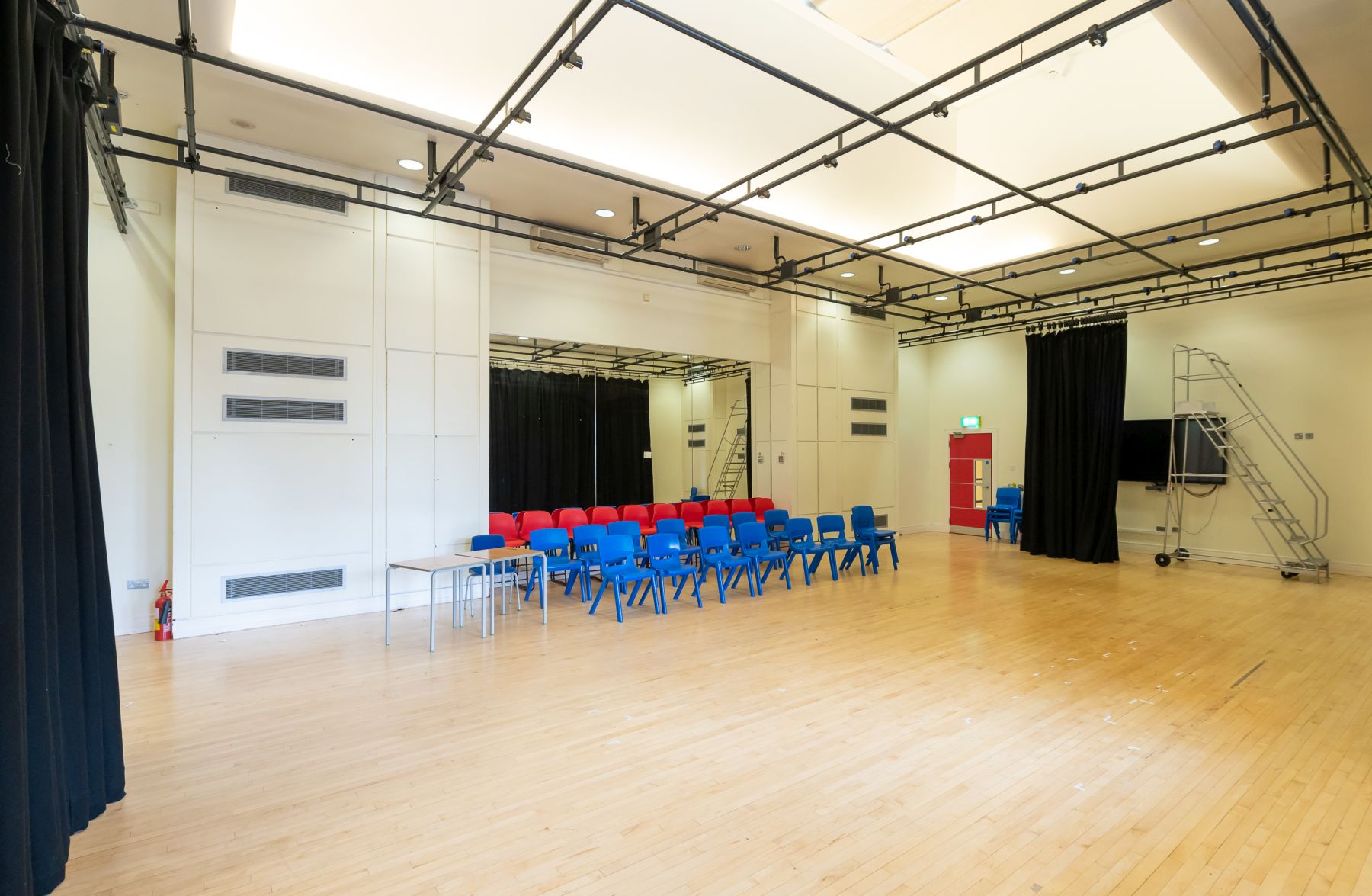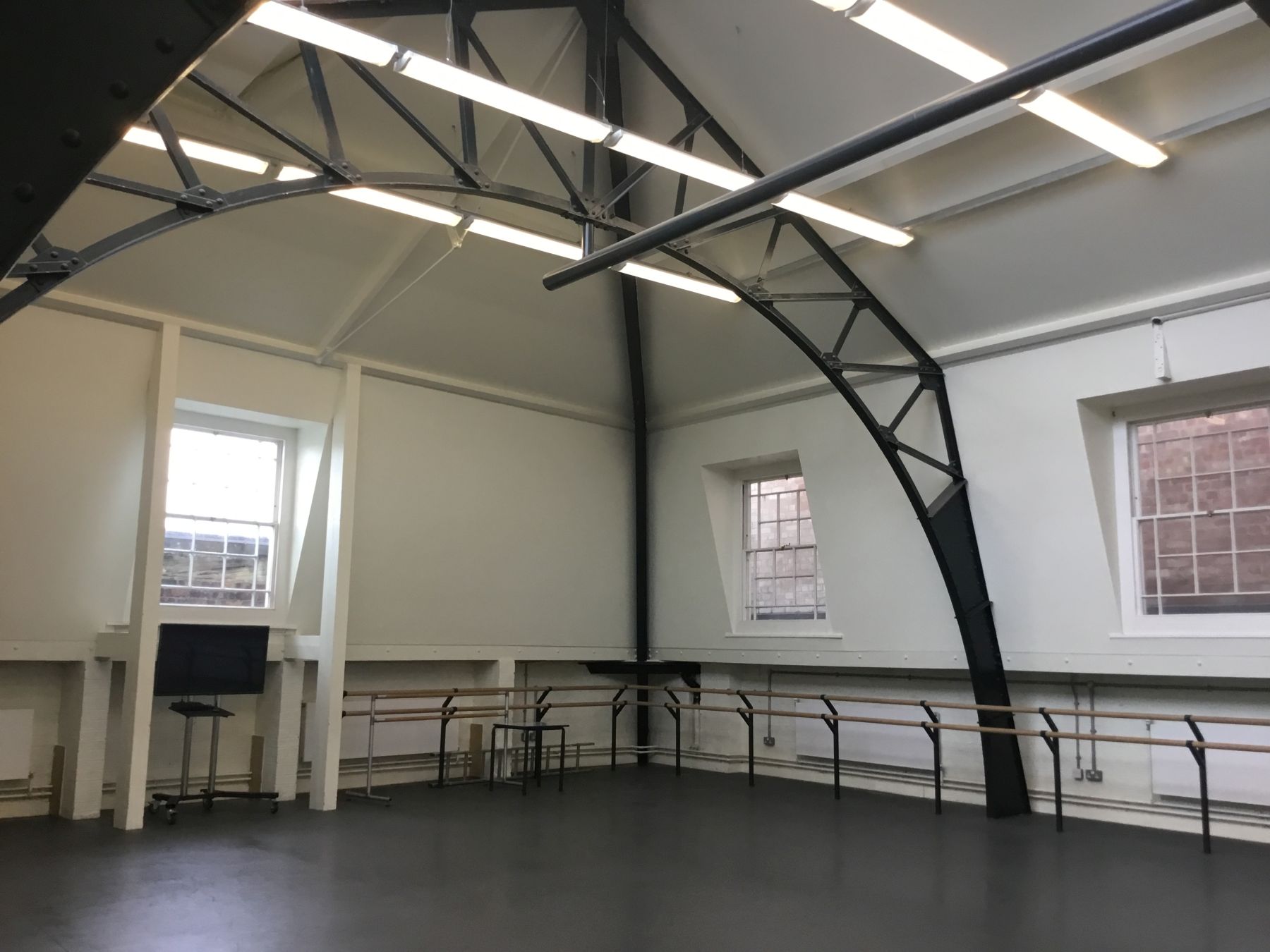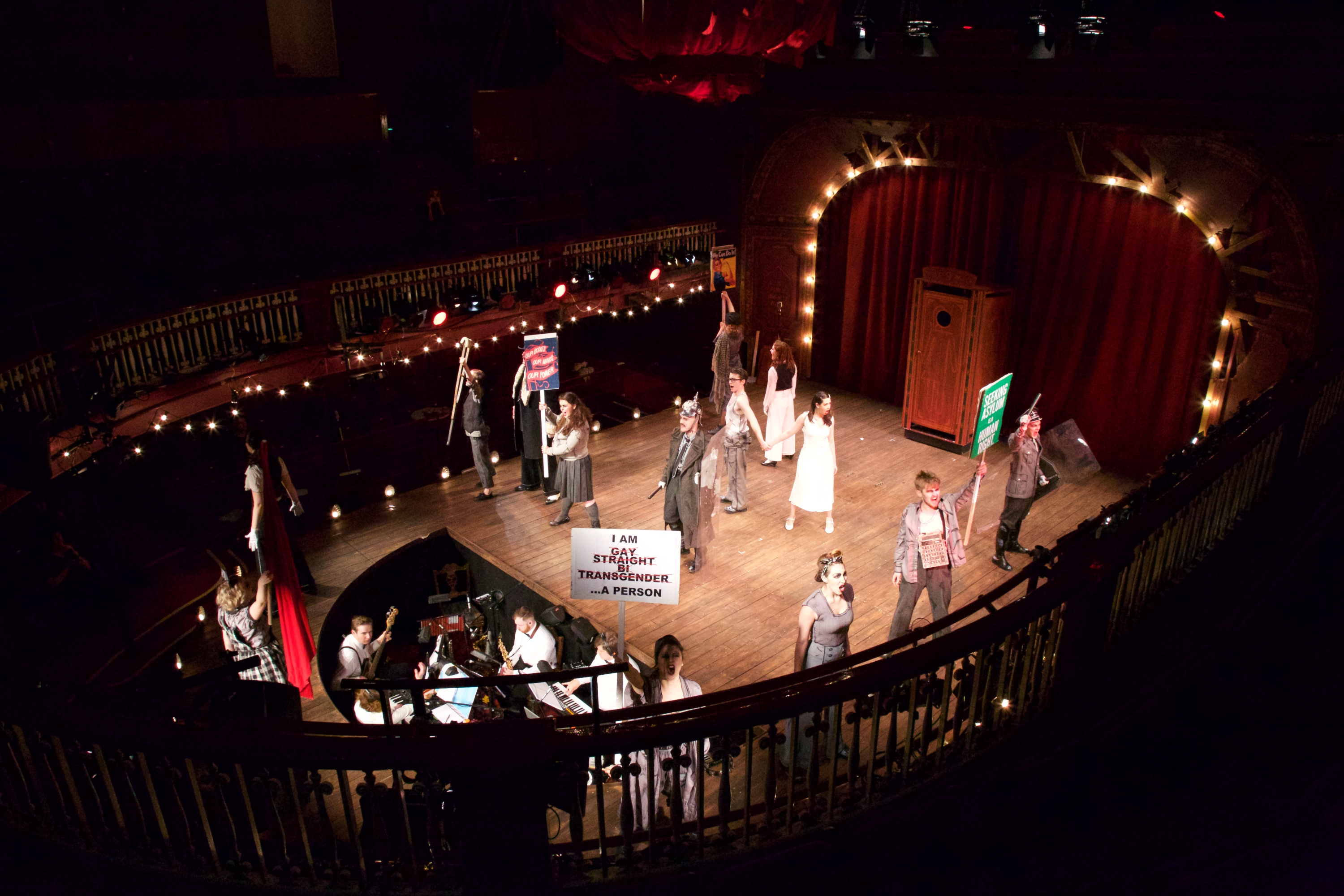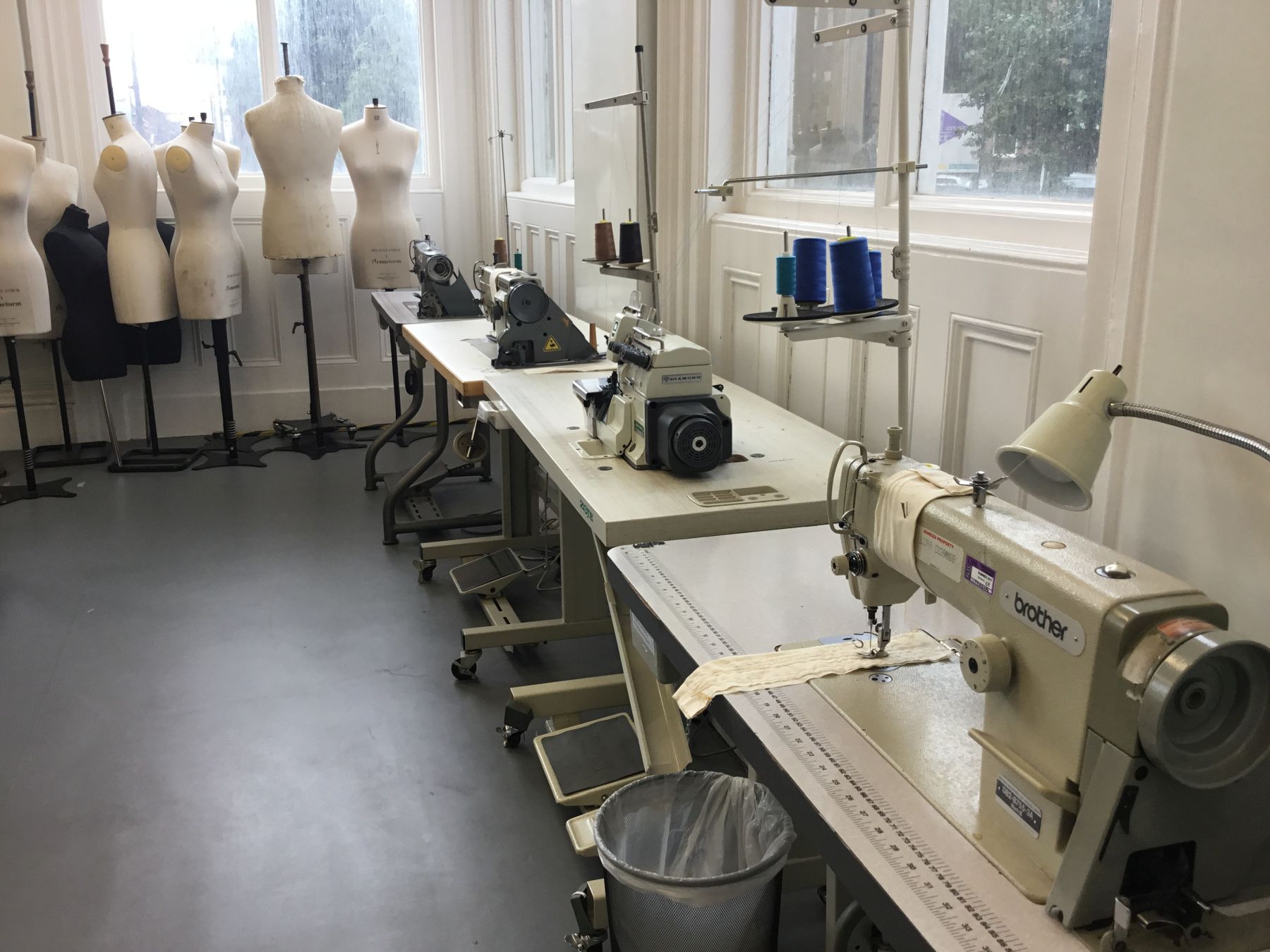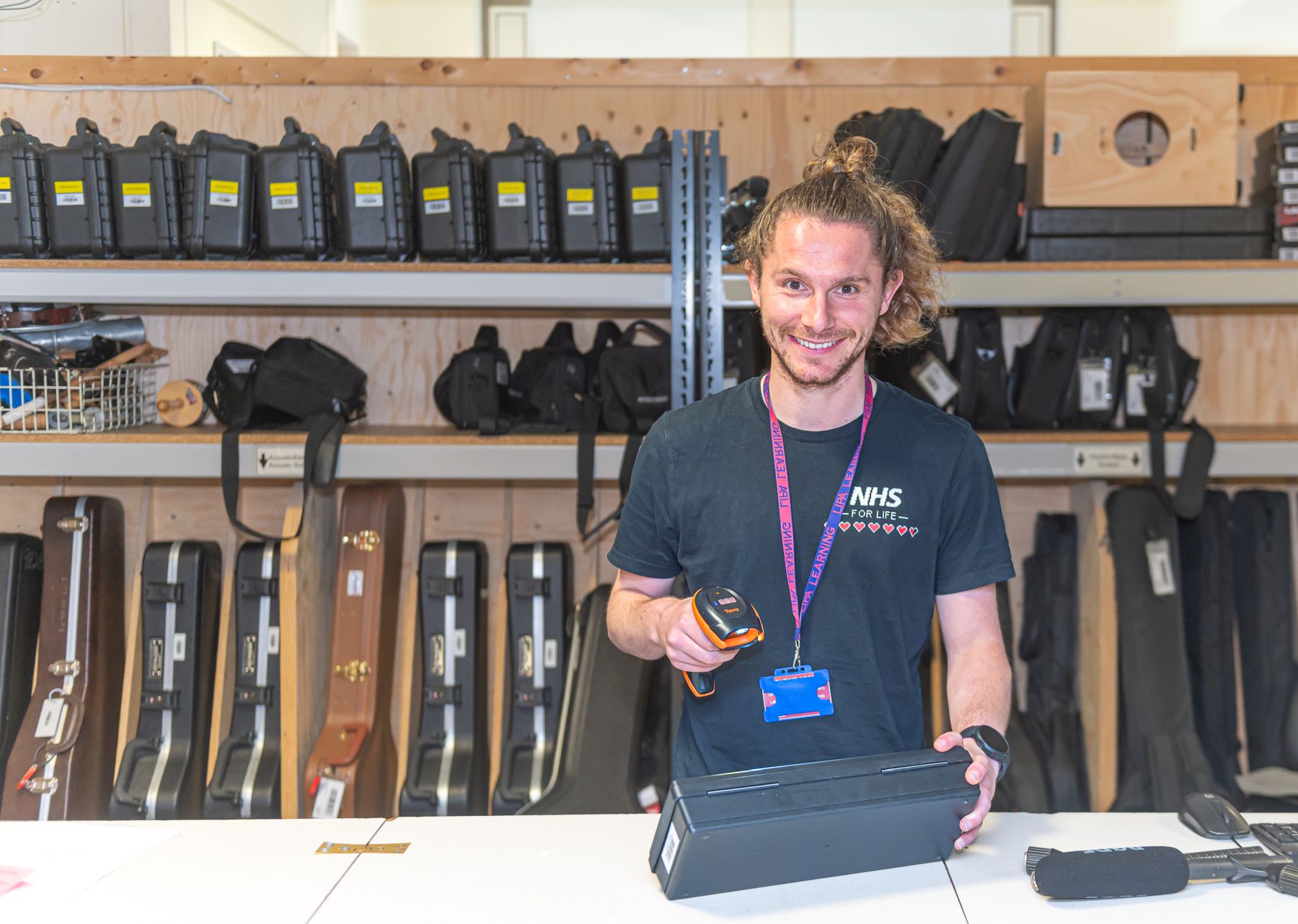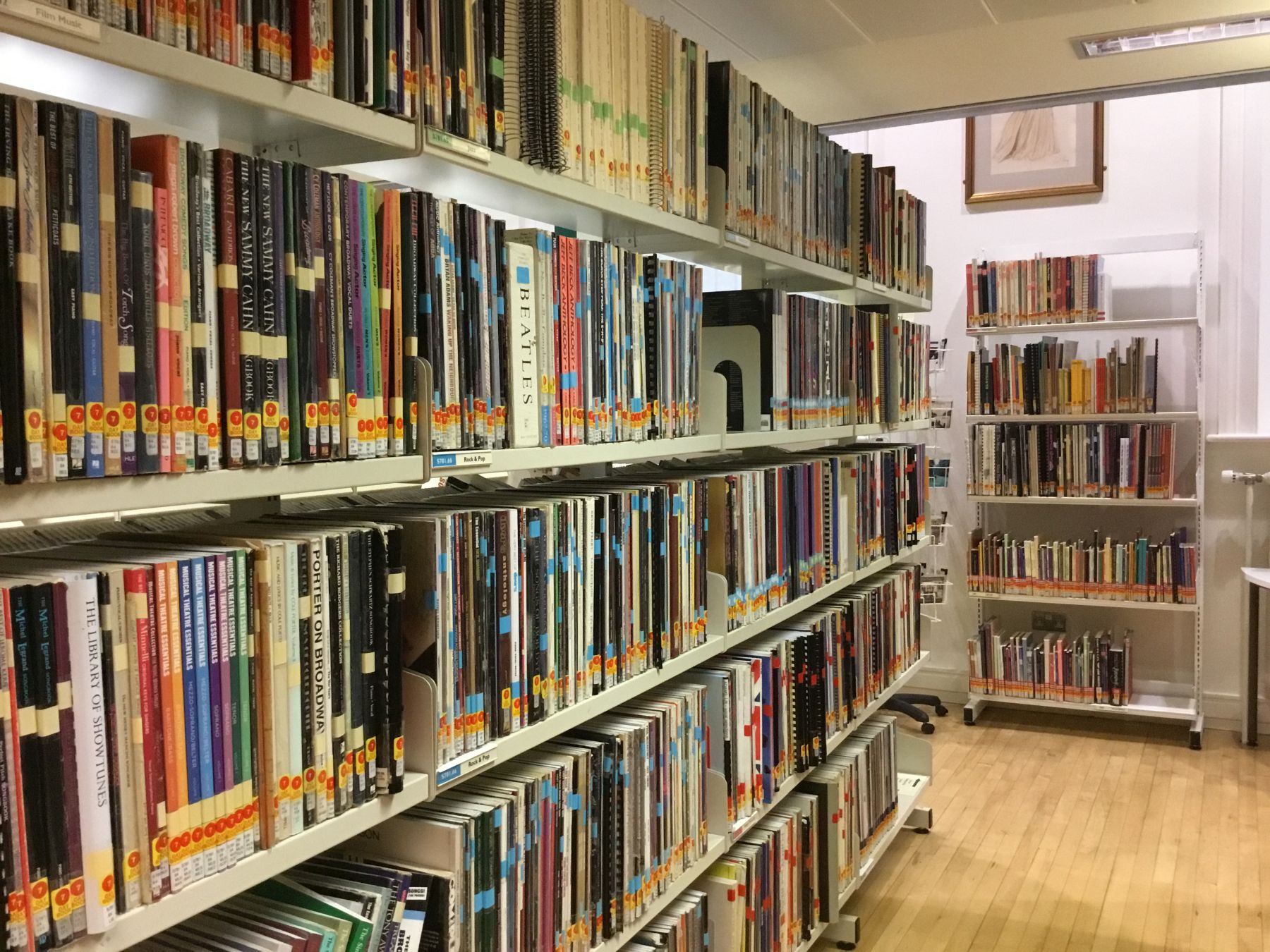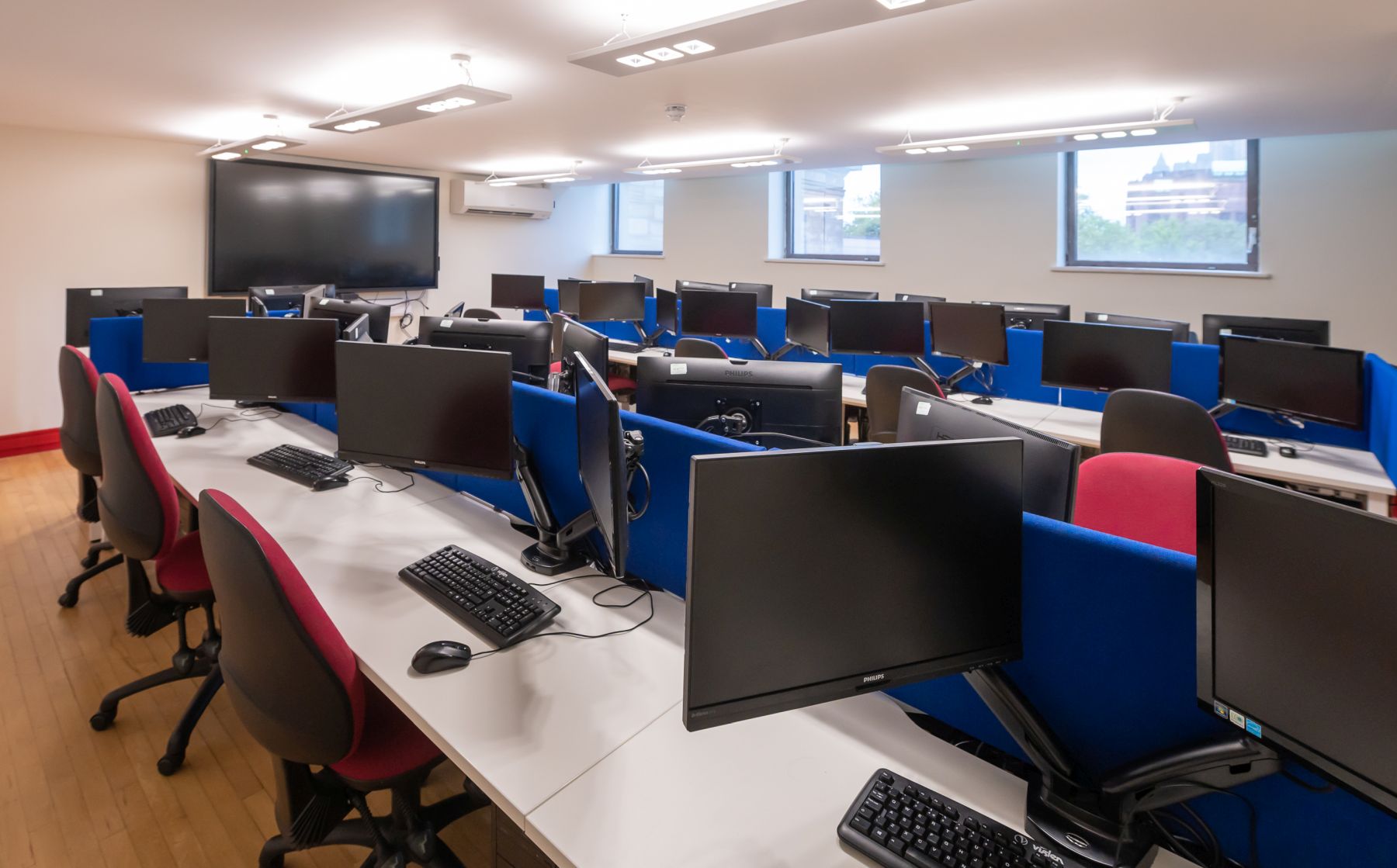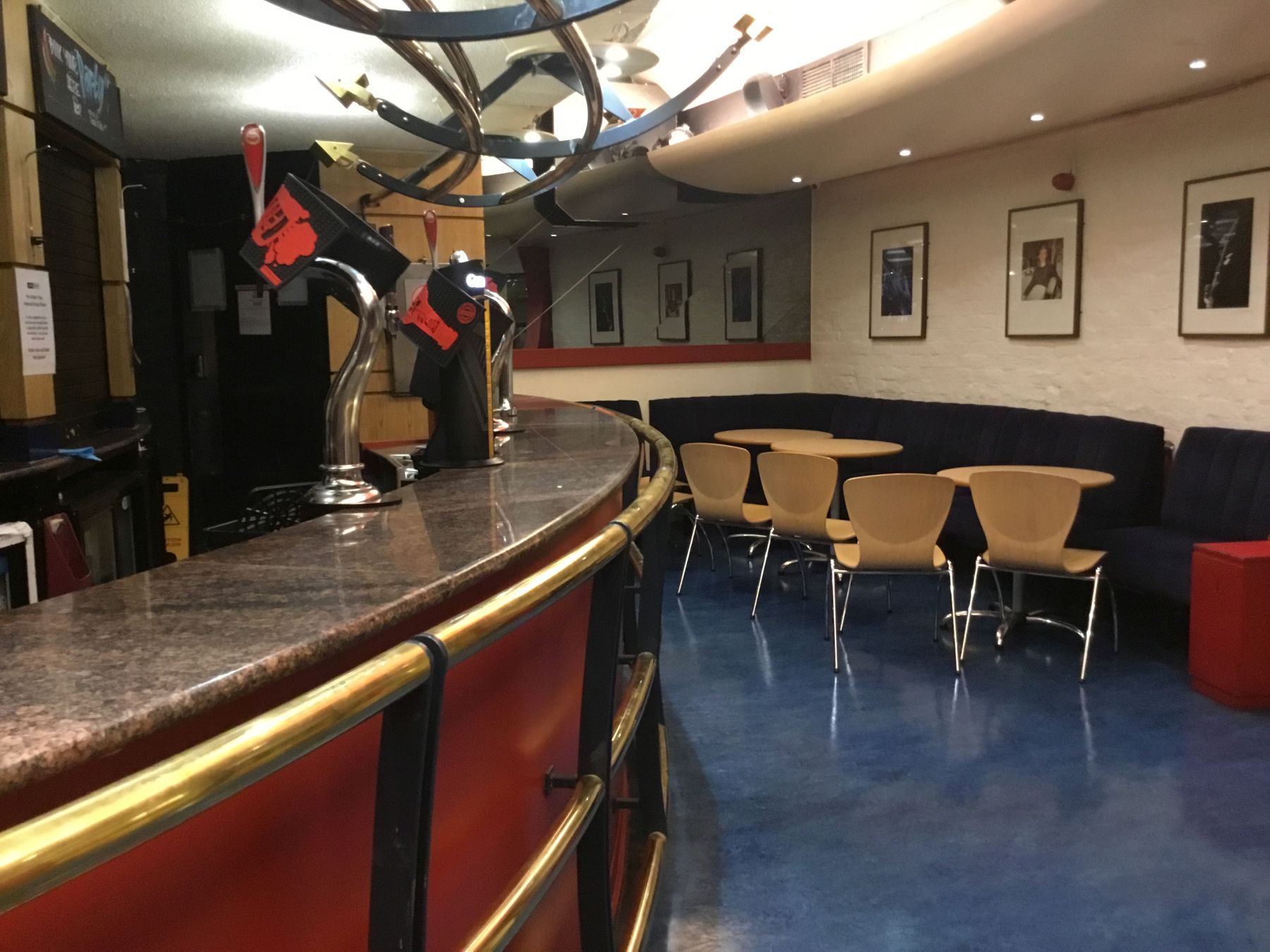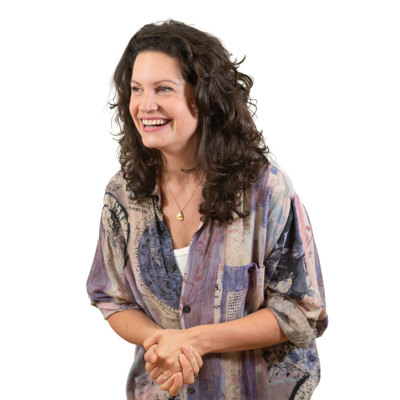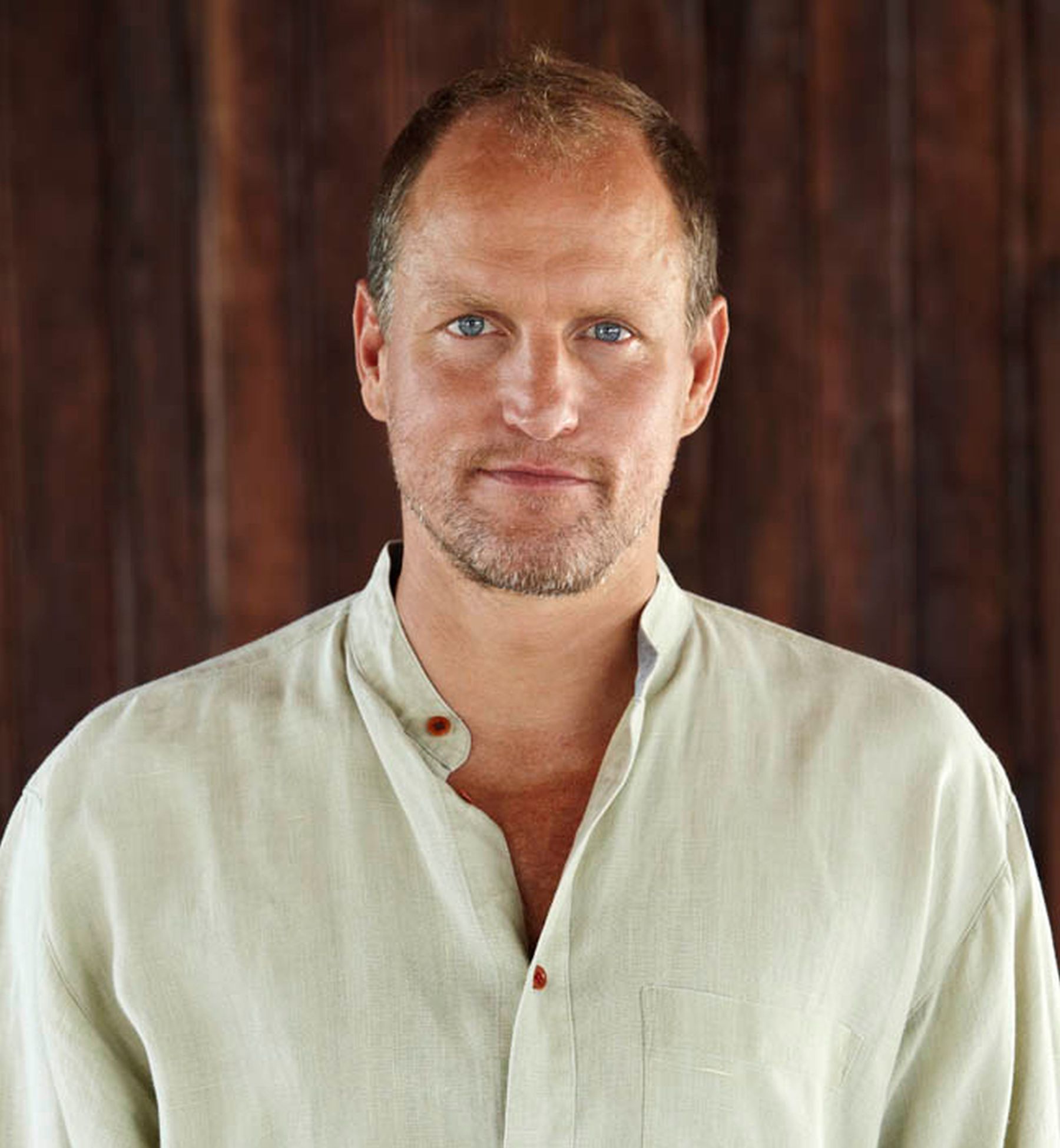Course
Overview
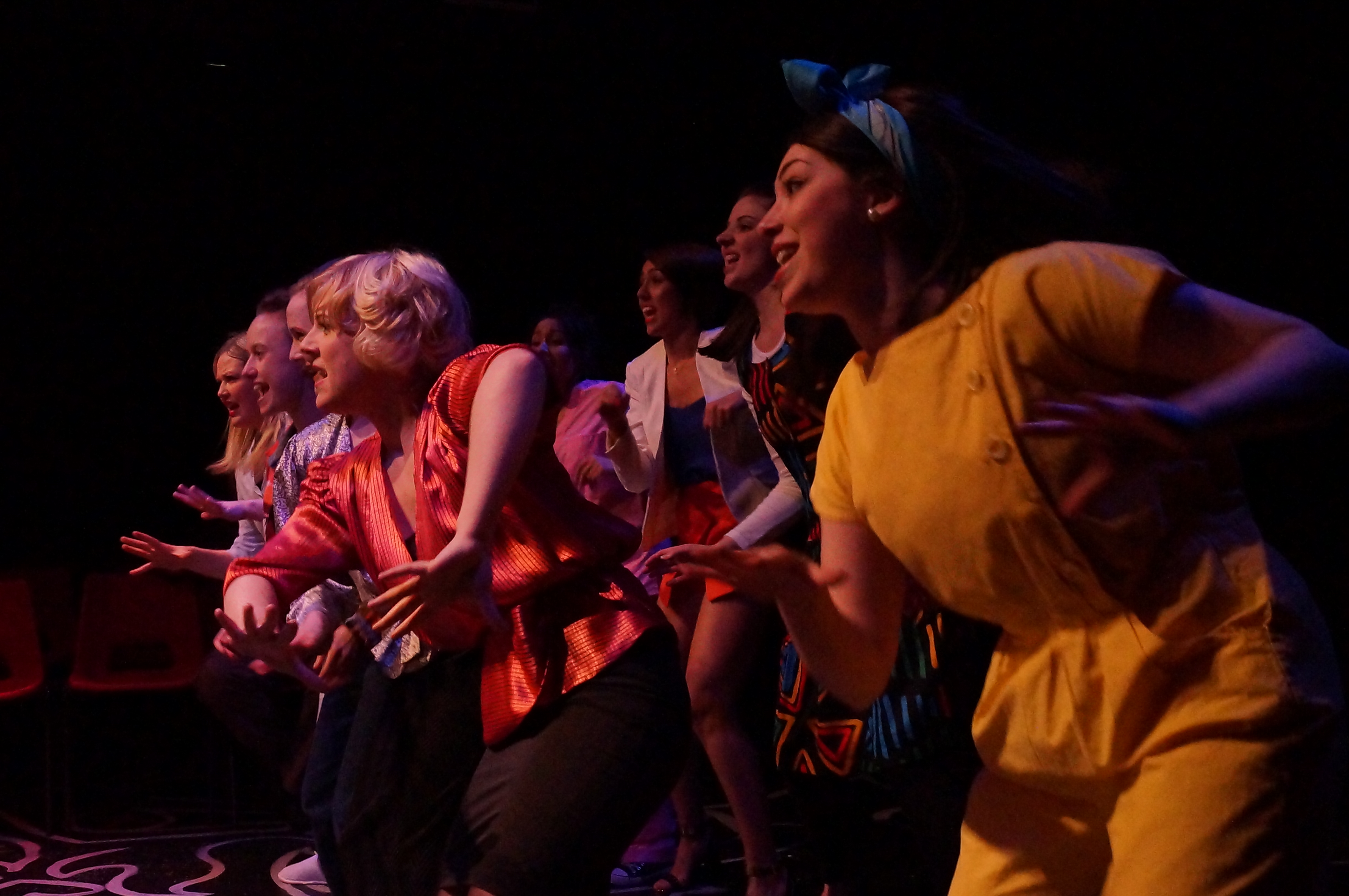
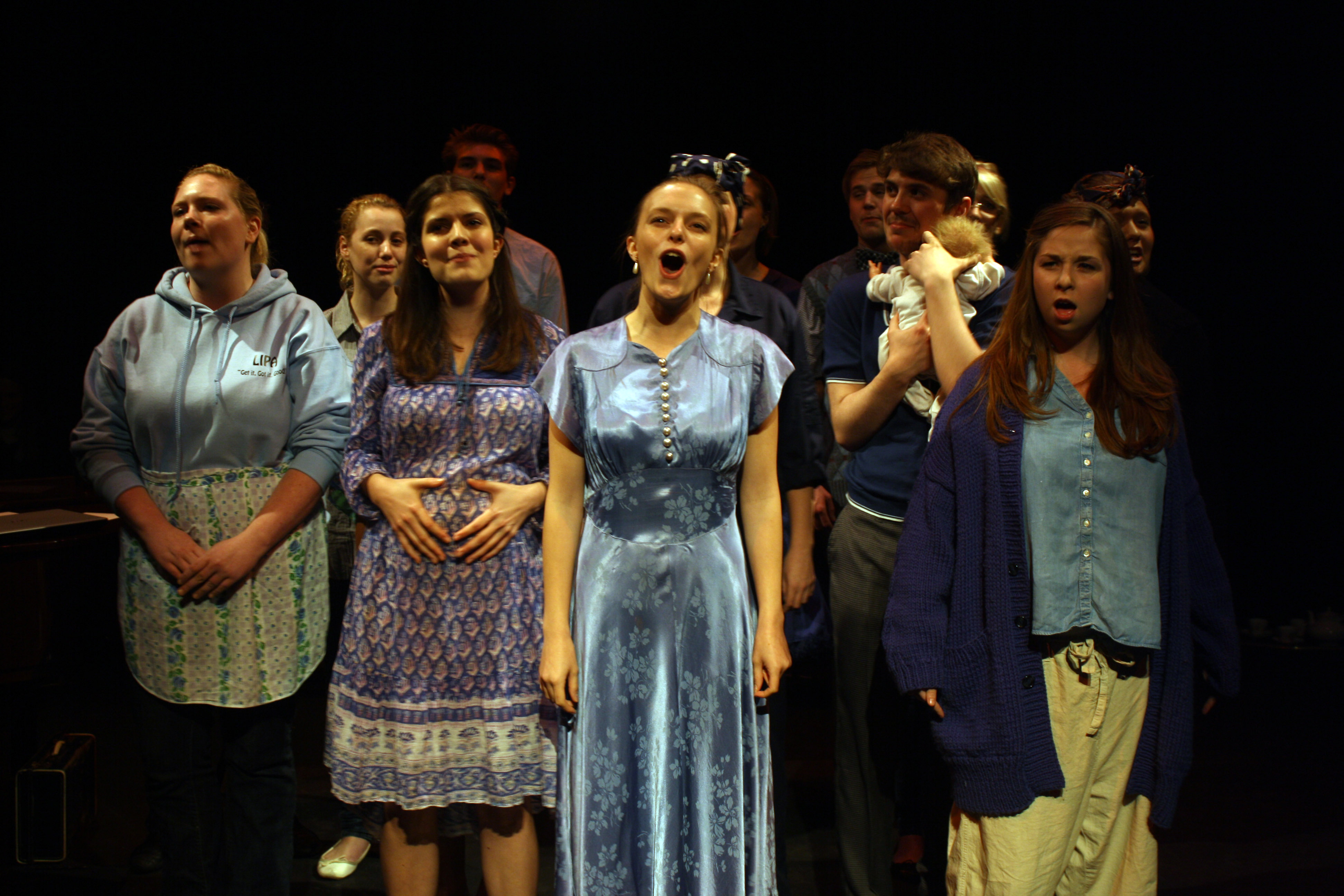
Our course is aimed at people who are passionate about a career in musical theatre but are not quite ready for an undergraduate-level course. It’s an opportunity to immerse yourself in rigorous musical theatre training that will prepare you for auditions and degree-level training.
Intensive, highly practical and industry focused, you develop your confidence and ability as an actor, combined with musical and dance skills. It will equip you with fundamental technical and stylistic skills as you create a portfolio of contemporary, classical and musical material that is uniquely suited to you, helping you to stand out from the crowd. The course culminates in a performance project where you bring together all you have learnt.
This course is still open to new applications for a September 2025 start, even though the UCAS deadline has passed.
Accredited By:


What You Will
Study
The Actor’s Foundation: Musical Theatre Fundamentals I
This module presents you with fundamental acting, singing and dance approaches to realise musical theatre works. You work with ensemble and solo song techniques as well as group dance classes, building your confidence and ability to master auditioning. By the end of this module, you undertake mock auditions, have a practical portfolio of industry standard audition material and are armed with the technical approaches to execute the rigours of auditioning in a variety of contexts.
The Actor’s Foundation: Musical Theatre Fundamentals II
In this module, you begin to integrate acting, singing and dance skills. You undertake project work that allows you to understand the combination of these three vital disciplines from a range of historical, cultural and international origins, uncovering contemporary interpretations. You begin to understand your primary instrument and how to use it to your advantage. This expands your understanding and knowledge of musical theatre and musicianship, including performance possibilities.
The Actor's Foundation: Musical Theatre Fundamentals III
For this module you conclude your foundation training by working with a professional director to integrate acting skills in a staged live performance project, combining your acting fundamentals. You work with professional etiquette and discipline in the rehearsal room, and become familiar with expected practice and vocabularies. This culminates in you presenting your live theatre work to an invited audience.
Personal Practice
This module provides you with the knowledge, communication and presentation skills to articulate your own ideas, opinions and feelings about current performance and industry practice in a staged performance project. These are crucial interpersonal and interview skills. It is carefully scheduled to accompany and complement an audition process, helping you to strategise your preparation and development for the next stage in your actor training. It provides you with the vital skills to fulfil personal statements and programme applications for degree-level actor training in drama school or conservatoire-style specialist institutions.
How You Will
Study
-
Technical Skills Classes
-
Performances
-
Seminars
-
Workshops
-
Independent study
-
Group work
-
Masterclasses
How You Will Be
Assessed
Your assessment predominantly takes place during your practical classes and rehearsals, performances and your reflective exercises. Coursework assignments are limited to written personal statements and applications.
Practical/written work ratio
80% practical work / 20% portfolio
Andrew Waldron
Head of Musical Theatre
Andrew Waldron (he/him) is an experienced practitioner and educator specialising in Musical Theatre. After training at Italia Conti, Andrew progressed into performing within the Musical Theatre sector with work taking him across the world. His performing credits include Mack & Mabel, 9 to 5, Cabaret, Follies, A Chorus Line, Chitty Chitty Bang Bang, Happy Days – A New Musical, Annie, and The Sound of Music. Andrew’s performing career introduced him to some of the world’s finest and most innovative creatives.
Alongside his performance career, Andrew delivered masterclasses for drama schools and theatre companies, as well as directing and choreographing many projects and productions. He subsequently continued his studies completing a further degree at Middlesex University and an MA in Theatre at University of Surrey. Andrew is a Fellow of the Royal Society of Arts (FRSA) and a Fellow of Advanced HE (FHEA).
Andrew has taught at several drama schools including Mountview, Performers College, and Urdang. Prior to his role at LIPA, Andrew worked at Italia Conti for eight years where he was Deputy Head of the School of Musical Theatre and Dance. Here he supported the development of their undergraduate provision including validation of various BA (Hons) and Cert HE courses and producing multiple industry facing performances and events.

Arabella Gibbins
Teaching Fellow
Arabella is an actor, voice-over artist and voice coach. Her one-woman show Big Bad won an Origins Award for Outstanding New Work and is touring this summer. Arabella is a singer-songwriter, musical comedienne and she’s even done backing vocals for Robbie Williams. As a professional performer Arabella understands the demands of the industry. Her valuable experience on stage and in the vocal booth means she is informed and knowledgeable in the rehearsal room.
What Our
Graduates Do
The course aims to equip our graduates to go on to further training with us or at other specialist, prestigious drama schools that are oversubscribed with musical theatre applicants.
If you decide to apply for our Acting (Musical Theatre) degree or another one of our degrees, you will still need to go through our regular audition process, alongside other applicants. Progression on to one of our degrees is not guaranteed. However, the course will give you an understanding of what we look for in a degree level student and our institutional ethos, making it great preparation for an audition.
Students on our previous foundation courses have gone on to study degrees at LIPA and at other institution such as Arts Ed, Bristol Old Vic Theatre School, Drama Centre, East 15, Mountview Academy of Theatre Arts, Rose Bruford, Royal Welsh College of Music and Drama.
Educational qualifications are important but limited in what they can tell us about you.
Your natural ability, your fit with what and how we teach, your growth and your potential are also key factors in our admission process. We can’t evaluate these solely on your educational achievements, so no matter which course you are applying for, we look for the following attributes on your application and at the interview stage.
Additional Costs
As part of this course, there are likely to be some additional costs that are not included within your tuition fees. Many of these are optional.
After you accept our offer, we'll send you a list of books and equipment that we'd like you to bring. We recommend that you bring specific clothing and footwear for your practical classes. These are standard items of clothing that you will need as a working actor.
Here are the key course-related costs that we'd expect you to pay during your one year with us, in addition to your tuition fees:
Seeing shows
You should go to the theatre as often as you can. This is not compulsory, but it will help your development as a performer. Theatre visits are not covered by your tuition fees, so you'll need to cover these costs yourself. Most theatres offer student discounts for students and we are occasionally offered a limited number of free or discounted tickets for shows in the city. It is highly recommended that you attend the Acting department performances. We offer discounted student tickets to make this as affordable as possible.
Physiotherapy
We work with an external organisation to provide specialist sports physiotherapy and massage to students throughout the year. Sports massage therapy can relieve over-worked muscles and help to maintain a good range of motion and flexibility in the body. This is optional and comes with a cost of around £115 (this was for the fee for 2024 entry and may be subject to an inflationary increase for 2025 and 2026 entry).
Cost of living
Wherever you choose to study, you'll have to budget for accommodation and other everyday living expenses, such as food and bills.
Accommodation costs are relatively low in Liverpool, particularly compared to the south east of England, and the city's shops and entertainment venues also have lots of student discounts.
We’d recommend completing a simple budget plan to predict your income and outgoings. This should include accommodation, bills, insurance, TV licence, food, laundry, clothes, books, travel and socialising. How much you'll want to spend on a lot of these is completely personal.
There is lots of advice available online about budgeting,:
- UCAS budget calculator is a great tool to help you balance your in-comings and out-goings.
- SaveTheStudent provides useful information on student money resources, including loans, budgeting, and scholarship sources.
Most UK students will be able to take out a maintenance loan to assist with living costs and there are some grants available. We also offer some bursaries. To find out more, please see Student Finance and bursaries.
Because our courses are intensive and we have a busy season of student performances, options for part-time work during our teaching periods can be limited. However, many of our students gain flexible part-time work, in performance venues, shops, restaurants and bars. We also provide casual work opportunities for our students ranging from stewarding work on our productions to working with young people to help us widen access to our courses. The long summer break is when many of our students choose to work.
Additional Costs
As part of this course, there are likely to be some additional costs that are not included within your tuition fees. Many of these are optional.
After you accept our offer, we'll send you a list of books and equipment that we'd like you to bring. We recommend that you bring specific clothing and footwear for your practical classes. These are standard items of clothing that you will need as a working actor.
Here are the key course-related costs that we'd expect you to pay during your one year with us, in addition to your tuition fees:
Seeing shows
You should go to the theatre as often as you can. This is not compulsory, but it will help your development as a performer. Theatre visits are not covered by your tuition fees, so you'll need to cover these costs yourself. Most theatres offer student discounts for students and we are occasionally offered a limited number of free or discounted tickets for shows in the city. It is highly recommended that you attend the Acting department performances. We offer discounted student tickets to make this as affordable as possible.
Physiotherapy
We work with an external organisation to provide specialist sports physiotherapy and massage to students throughout the year. Sports massage therapy can relieve over-worked muscles and help to maintain a good range of motion and flexibility in the body. This is optional and comes with a cost of around £115 (this was for the fee for 2024 entry and may be subject to an inflationary increase for 2025 and 2026 entry).
Cost of living
Wherever you choose to study, you'll have to budget for accommodation and other everyday living expenses, such as food and bills.
Liverpool is one the UK's cheapest student cities. Accommodation costs are relatively low, particularly compared to the south east of England, and the city's shops and entertainment venues also have lots of student discounts.
We’d recommend completing a simple budget plan to predict your income and outgoings. This should include accommodation, bills, insurance, TV licence, food, laundry, clothes, books, travel and socialising. How much you'll want to spend on a lot of these is completely personal.
There is lots of advice available online about budgeting,:
- UCAS budget calculator is a great tool to help you balance your in-comings and out-goings.
- SaveTheStudent provides useful information on student money resources, including loans, budgeting, and scholarship sources.
Most UK students will be able to take out a maintenance loan to assist with living costs and there are some grants available. We also offer some bursaries. To find out more, please see Student Finance and bursaries.
Because our courses are intensive and we have a busy season of student performances, options for part-time work during our teaching periods can be limited. However, many of our students gain flexible part-time work, in performance venues, shops, restaurants and bars. We also provide casual work opportunities for our students ranging from stewarding work on our productions to working with young people to help us widen access to our courses. The long summer break is when many of our students choose to work.
Additional International student costs
UKVI English language requirements
If you are not from a majority English speaking country (as determined by UKVI), you will be required to establish to LIPA that you meet UVKI minimum standards for English language before getting a Confirmation of Acceptance for Studies (CAS) number. The CAS number we issue you allows you to begin the visa application process. There is no requirement for a student to evidence their English language qualification at the point of application, audition or interview.
Students who accept a place on Certificate of HE Foundation Acting (Musical Theatre) or Certificate of HE Foundation Acting (Stage & Screen) must sit a UKVI-approved Secure English Language Test (SELT). The cost of a SELT can range from approximately £180 - £250. You may also incur travel costs to your closest test centre.
Students who accept a place on an undergraduate or postgraduate course may have the opportunity to evidence their English language through a qualification from another country which meets LIPA’s assessment of its academic suitability, take a UKVI-approved Secure English Language Test (SELT), or completing and passing a LIPA Institutional Assessment of English. The cost of a SELT can range from approximately £180 - £250. You may also incur travel costs to your closest test centre. A LIPA Institutional Assessment of English is free of charge.
Student visa
All international students who do not hold a United Kingdom of Great Britain and Northern Ireland passport; a Republic of Ireland passport; or EU Settled Status (EUSS), will require a Student visa to study in the UK.
The Student visa application fee in 2025 was £490. Some students will need to have their biometrics taken as part of the visa application process and this may incur additional costs, notably travel costs to your nearest Visa Application Centre.
In addition to the application fee, you are required to pay the Immigration Health Surcharge, which gives you access to the UK’s National Health Service (NHS). Once your course starts, any medical treatment you require in the UK will be free of any further charges if you use the NHS, just as it is for UK nationals. The surcharge is compulsory, even if you hold private healthcare insurance. 2025 surcharge costs were as follows:
- Foundation and Certificate of HE programmes: £776
- Undergraduate (BA) programmes: £2,716
- Postgraduate (MA) programmes: £1,164
The surcharge will give access to NHS healthcare services from your arrival in the UK until the date your visa expires.
Accommodation
Some accommodation providers may require international students to pay a larger deposit, or pay for their accommodation in fewer, larger instalments. This is something individual students will need to discuss with their accommodation provider.
View the programme specification on the LJMU course catalogue here













